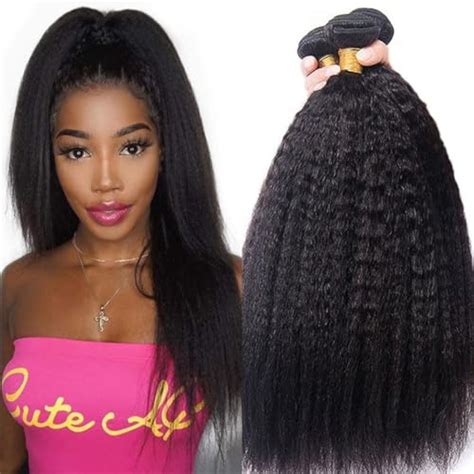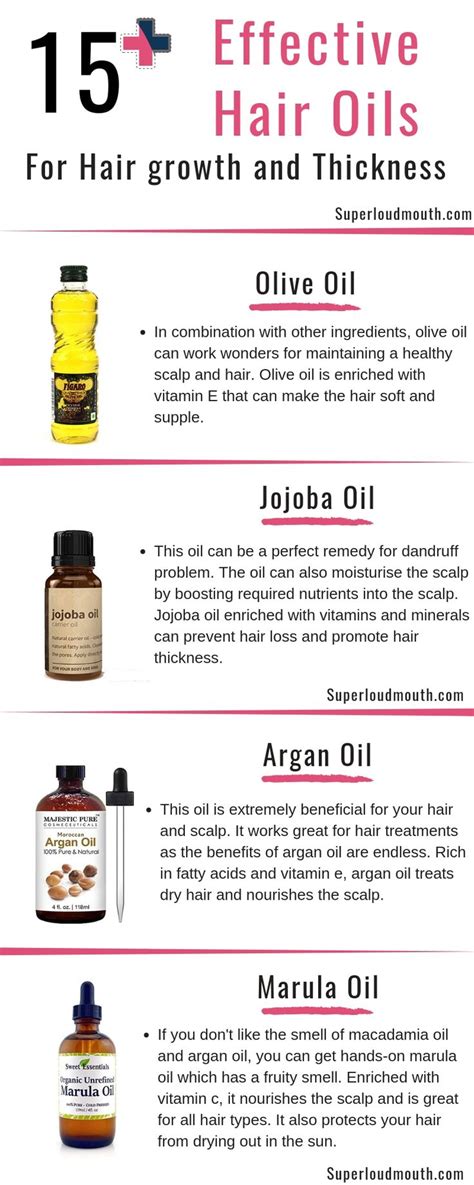Introduction: Unleashing the Power of Natural Remedies
Hair loss and thinning are common concerns that affect millions worldwide. While genetics and hormonal changes play a significant role, environmental factors and lifestyle choices can also impact hair health. One promising approach that has gained popularity is incorporating natural oils into your hair care routine. In this detailed guide, we’ll delve into the world of hair growth oils, exploring their benefits, effectiveness, and how to use them.

Oils That Promote Hair Growth
The following oils have been scientifically proven or traditionally used to promote healthy hair growth:
1. Rosemary Oil
Rosemary oil contains carnosic acid, a diterpene that can inhibit the production of the hormone dihydrotestosterone (DHT), which is linked to hair loss. Studies have shown that applying rosemary oil to the scalp can improve hair growth and reduce hair loss.
2. Lavender Oil
Lavender oil has calming and soothing effects on the scalp. It contains linalyl acetate, which has anti-inflammatory properties that can reduce scalp irritation and promote hair growth.
3. Peppermint Oil
Peppermint oil is known for its stimulating effects on the scalp. It contains menthol, which increases blood circulation to the scalp, promoting hair growth.
4. Argan Oil
Argan oil is rich in fatty acids, antioxidants, and vitamins that nourish and strengthen hair strands. It helps repair damaged hair and promotes healthy hair growth.
5. Castor Oil
Castor oil is thick and viscous, making it ideal for deep conditioning the hair. It contains ricinoleic acid, which has anti-inflammatory and antimicrobial properties that promote scalp health and hair growth.
Other Beneficial Oils
In addition to the core group of hair growth oils mentioned above, several other oils have shown promise in promoting healthy hair:
- Coconut Oil: Nourishes and moisturizes hair, reducing breakage and promoting growth.
- Jojoba Oil: Mimics the sebum produced by the scalp, providing moisture and preventing dryness that can lead to hair loss.
- Olive Oil: Rich in antioxidants and vitamins that protect and nourish hair, promoting growth.
- Avocado Oil: Contains fatty acids, vitamins, and minerals that strengthen and moisturize hair, enhancing growth.
- Sunflower Oil: Rich in vitamin E, which is essential for healthy hair growth.
How to Use Oils for Hair Growth
To effectively use oils for hair growth, follow these steps:
- Choose the Right Oils: Based on your hair type and needs, select oils that are known to be effective for promoting hair growth.
- Mix the Oils: In a small bowl, combine the chosen oils in equal parts.
- Apply to the Scalp: Using a dropper or applicator, apply the oil mixture directly to the scalp, focusing on the areas where hair growth is desired.
- Massage: Gently massage the oil into the scalp using circular motions to increase blood circulation and absorption.
- Leave In: Allow the oil mixture to remain in your hair for at least 30 minutes, or overnight for best results.
- Rinse: Rinse your hair thoroughly with warm water and shampoo as usual.
Frequency of Use
The frequency of oil application depends on the individual and the oils used. For best results, apply hair growth oils 2-3 times per week, but adjust the frequency based on your hair’s response.
Tips and Tricks
- Warm the Oils: Heating the oil mixture slightly can enhance absorption and penetration.
- Use a Carrier Oil: If the oil is too thick or concentrated, dilute it with a carrier oil like coconut or jojoba oil.
- Try a Scalp Massage: Incorporate a scalp massage into your hair growth routine to stimulate hair follicles and promote blood flow.
- Be Patient: Hair growth is a gradual process. It can take several weeks or months to see noticeable results from using hair growth oils.
Common Mistakes to Avoid
- Overusing Oils: Applying oils too frequently can clog pores and weigh down hair.
- Using Essential Oils Undiluted: Essential oils are highly concentrated and can cause irritation or burns if applied directly to the scalp.
- Not Rinsing Thoroughly: Leaving oil residue in the hair can lead to buildup and hair breakage.
- Using Expired Oils: Oils can become rancid over time, losing their effectiveness and potentially harming your hair.
Conclusion: Embracing Natural Solutions
Incorporating oils into your hair care routine can be a safe and effective way to promote hair growth. By choosing the right oils and using them correctly, you can harness their natural benefits to nourish your scalp, strengthen hair strands, and stimulate hair growth. Remember to be patient, consistent, and experiment with different oils to find what works best for you. By embracing these natural remedies, you can unlock healthier, thicker, and more vibrant hair.
Frequently Asked Questions (FAQs)
Q: Can hair growth oils reverse baldness?
A: While hair growth oils can promote hair growth, they cannot reverse complete baldness. However, they may be effective in slowing hair loss and improving the health of existing hair follicles.
Q: Are hair growth oils safe for all hair types?
A: Yes, hair growth oils are generally safe for all hair types. However, it’s always advisable to test a small amount on a patch of skin before applying it to the entire scalp.
Q: Is it necessary to use a carrier oil when applying hair growth oils?
A: If the hair growth oil is thick or concentrated, diluting it with a carrier oil can help improve absorption and prevent scalp irritation.
Q: How long does it take to see results from using hair growth oils?
A: Results from using hair growth oils vary depending on the individual and the oils used. Generally, it can take several weeks or months to see noticeable improvements.
